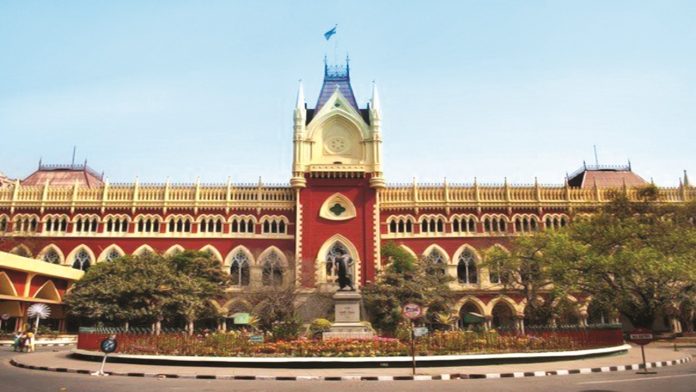In a judgment on October 18, the Calcutta High Court urged adolescent girls not to get swayed for two minutes of pleasure and to control their sexual impulse. It advised adolescent boys to respect girls and women along with their dignity and bodily autonomy.
The order also outlined a set of duties for adolescent girls and boys concerning sexual urges and relationships. The division bench of Justices Chitta Ranjan Dash and Partha Sarathi Sen made these suggestions while releasing a youth convicted for raping a minor girl. The boy was involved in a “romantic affair” with her.
The Court mandated the need for sexual education of adolescents based on comprehensive rights to avoid further legal complications.
The jury raised concerns over the Protection of Children from Sexual Offences (POCSO) Act, which equated consensual sexual acts among adolescents with sexual abuse. They appealed for consensual acts that involved adolescents above 16 years be decriminalised.
In its judgment, the Court explained the factors contributing to sexual urges and stressed that they are primarily influenced by hormones like testosterone, which were activated by various stimuli. It stated that sexual urges are created by one’s own actions, such as what they see, hear, read or discuss.
To address the issue, the Court proposed an “obligation based approach” and outlined specific duties for adolescents. It said it is the duty of every female adolescent to:
(i) Protect her right to integrity of her body.
(ii) Protect her dignity and self-worth.
(iii) Thrive for overall development of her self transcending gender barriers.
(iv) Control sexual urge/urges as in the eyes of society she is the looser when she gives in to enjoy the sexual pleasure of hardly two minutes.
(v) Protect her right to autonomy of her body and her privacy.
For adolescent males, the Court stressed that their duty was to respect the duties of young girls and women. They should be trained to respect women’s self-worth, dignity, privacy and their autonomy over their bodies.
This is not the first time that a Court has given a morality lesson to the public. The Kerala High Court in Jayasree vs Director of Public Instructions & Others stated that there was nothing wrong when girls and boys study together in school. The petitioner here had applied for the admission of his daughter in Standard I in the same school as his son and the respondent was the headmaster of the school. But the application for admission submitted by the petitioner got rejected by the headmaster on the grounds that the permission of the Education Department was needed for giving admission to a girl child in the primary section. It was also stated that without the permission of the department, the admission of the girl child was not possible even in mixed schools.
The Court based its interpretation on provisions of the Kerala Education Rules and observed that “all primary schools whether it is lower or upper shall be deemed to be mixed schools and admission thereto shall be open to boys and girls alike. No differentiation can be made between a boy and a girl as regards admission to the lower primary or the upper primary school since it is deemed to be a mixed school. A departure from this course is possible only if the Director of Public Instructions grants exemption in view of certain special circumstances”.
Further, Justice V Chitambaresh of the Kerala High Court ruled: “A mixed school with a co-education helps the children to have healthy trends and isolation of them at this young age would only prove to be detrimental to their growth. It helps the children grow with better discipline and morality.” The Court quashed the order of the headmaster for taking permission from educational authorities and stated that it was the fundamental right of every citizen to take education. It directed the school to give admission to the daughter of the petitioner without discriminating on any ground.
In 2021, the Madras High Court ruled that the POCSO Act was not intended to bring within its ambit romantic relationships between adolescents or teenagers. Yet, many youngsters were getting prosecuted under the law, it said. It is high time that the Act was amended appropriately, it said.
Justice N Anand Venkatesh said several cases booked under the Act fell under the category of elopement of teenagers. However, as a consequence of police complaints lodged by family members of the girls, boys invariably got arrested and their youthful life came to a grinding halt. “An adolescent boy caught in a situation like this will surely have no defence if the criminal case is taken to its logical end. Punishing an adolescent boy who enters into a relationship with a minor girl by treating him as an offender was never the objective of the POCSO Act,” the judge said.
The Court also observed that adolescence was associated with many psychosocial and developmental challenges, including processing intense emotions and first loves. It was also essential to acknowledge the vast exposure to digital content, which influences the youth. In this case, the judge said, the victim herself had filed a memo stating that it was she who forced the accused, in his early twenties, to elope with her in 2018 though he was not inclined to do so. Now, her parents too were not interested in going ahead as the case was a stumbling block in getting her married. After examining the legal possibility of quashing a case booked under non-compoundable offences, the judge held that it could be done as the offences were purely personal in nature.
With sensitivity by courts, adolescents go can ahead with their lives without being permanently tarnished.
—By Abhilash Kumar Singh and India Legal Bureau


